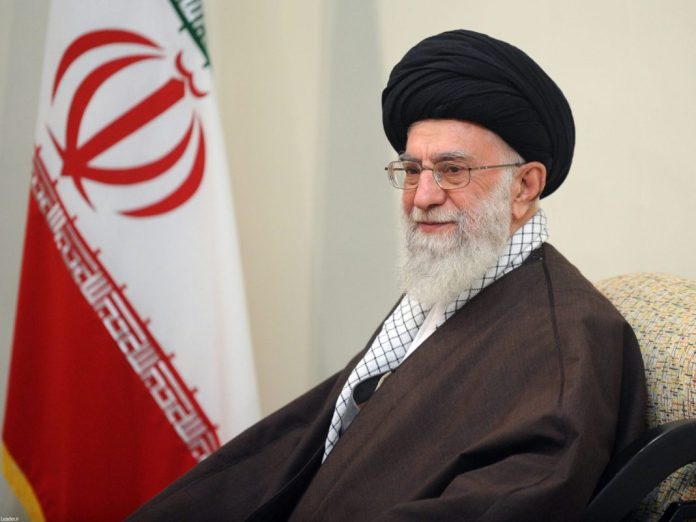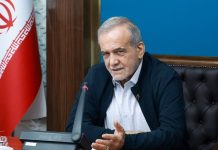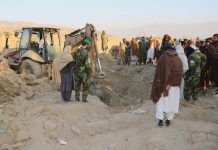Leader of the Islamic Revolution in Iran Ayatollah Ali Khamenei has emphasized that Iran’s problems should not be linked to the negotiations with the United States, noting that they are one of dozens of actions undertaken by the Ministry of Foreign Affairs.
During his reception of a group of government members, members of the Islamic Consultative Assembly, senior officials of the judiciary, and officials of some institutions on the occasion of the beginning of the Iranian New Year, Ayatollah Khamenei emphasized that the Islamic Republic views these negotiations with neither excessive optimism nor excessive pessimism, and that a decision has been made regarding a step that has been implemented well in its early stages. He explained: “Of course, we are very pessimistic about the other side, but we are optimistic about our own capabilities.”
He added, “The mistake made in the Joint Comprehensive Plan of Action (JCPOA) should not be repeated.” He referred to the nuclear agreement. During the negotiations over the JCPOA, all issues in the country were linked to the progress of the negotiations, noting that investors do not invest in the country when they see that everything depends on negotiations.
The Leader of the Islamic Revolution believed that the best way to confront the sanctions is to invest in production, explaining, “We do not have the power to lift the sanctions, but we can neutralize them. There are many ways and domestic capabilities for this, and if this goal is achieved, the country will become immune to these sanctions.”
He considered expanding relations with neighbors and economic centers in Asia, Africa, and other countries important, noting that this work also requires follow-up, especially with regard to changing some practices at the intermediate levels.
Avoiding “excessive optimism and pessimism” in these talks, Ayatollah Khamenei said, “The country’s decision to negotiate was implemented well in the first steps, but after that, we must proceed with caution, as the red lines are very clear for us and for the other side.”
He continued: “The negotiations may or may not reach a conclusion. We are neither very optimistic nor very pessimistic about these talks. Of course, we are very pessimistic about the other side, but we are optimistic about our capabilities.”
The leader concluded his remarks by addressing the latest developments in Gaza, pointing to the unprecedented crimes committed by the criminal Zionist gang in its deliberate attacks on patients, journalists, ambulances, hospitals, and oppressed children and women in Gaza. He explained that these crimes require extraordinary cruelty, which the occupying criminal gang possesses.
He emphasized that coordinated action by the Islamic world in the economic, political, and even operational spheres, if necessary, is an urgent need. He said: “We are confident that God will bring down His punishment on these oppressors, but this does not absolve governments and peoples of their grave responsibilities.”





















